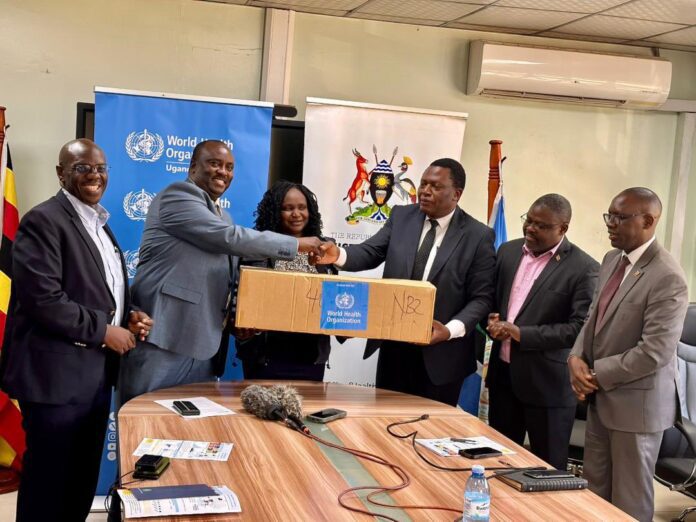
The World Health Organization (WHO) has donated M-pox sample collection kits worth UGX 56 million to Uganda’s Ministry of Health to help boost its fight against an outbreak of the disease.
The kits were handed over to Ministry of Health senior officials, including the Director of Public Health, Dr. Daniel Kyabayinze; Dr. Charles Olaro; and the Incident Commander, Dr. Henry Kyobe, on Monday, September 23, 2024 at the ministry’s head offices in Kampala.
The World Health Organization’s contribution is set to enhance Uganda’s diagnostic capacity, particularly in high-risk districts where erratic Mpox cases continue to surface.
WHO stated that Uganda, as of now, has confirmed 22 M-pox cases, with investigations continuing to establish other suspected infections.
According to Dr. Daniel Kyabayinze, the Director of Public Health, WHO has played a pivotal role in strengthening Uganda’s public health infrastructure, especially in combating infectious diseases like Mpox.
’’These donated kits will be distributed across health centers nationwide as a way of improving the Ministry’s ability to speedily detect and isolate cases in order to deter further spread countrywide,’’ Kyabayinze said.
Adding, “As Uganda deals with multiple public health challenges, including the residual effects of COVID-19, international support remains critical to its health sector.”
Charles Njugunach noted that WHO’s donation is part of a broader effort to enhance Uganda’s emergency health response to diseases that include M-pox and COVID-19.
’’The provided M-pox sample kits allow effective sample collection as a first step in a diagnostic process that assures accurate laboratory results that draw proper decision-making by the health experts,’’ Njugunach said.
The health ministry is carrying out public awareness campaigns and is urging citizens to report suspected cases as well as maintaining proper hygiene to curb further transmission of the viruses.














